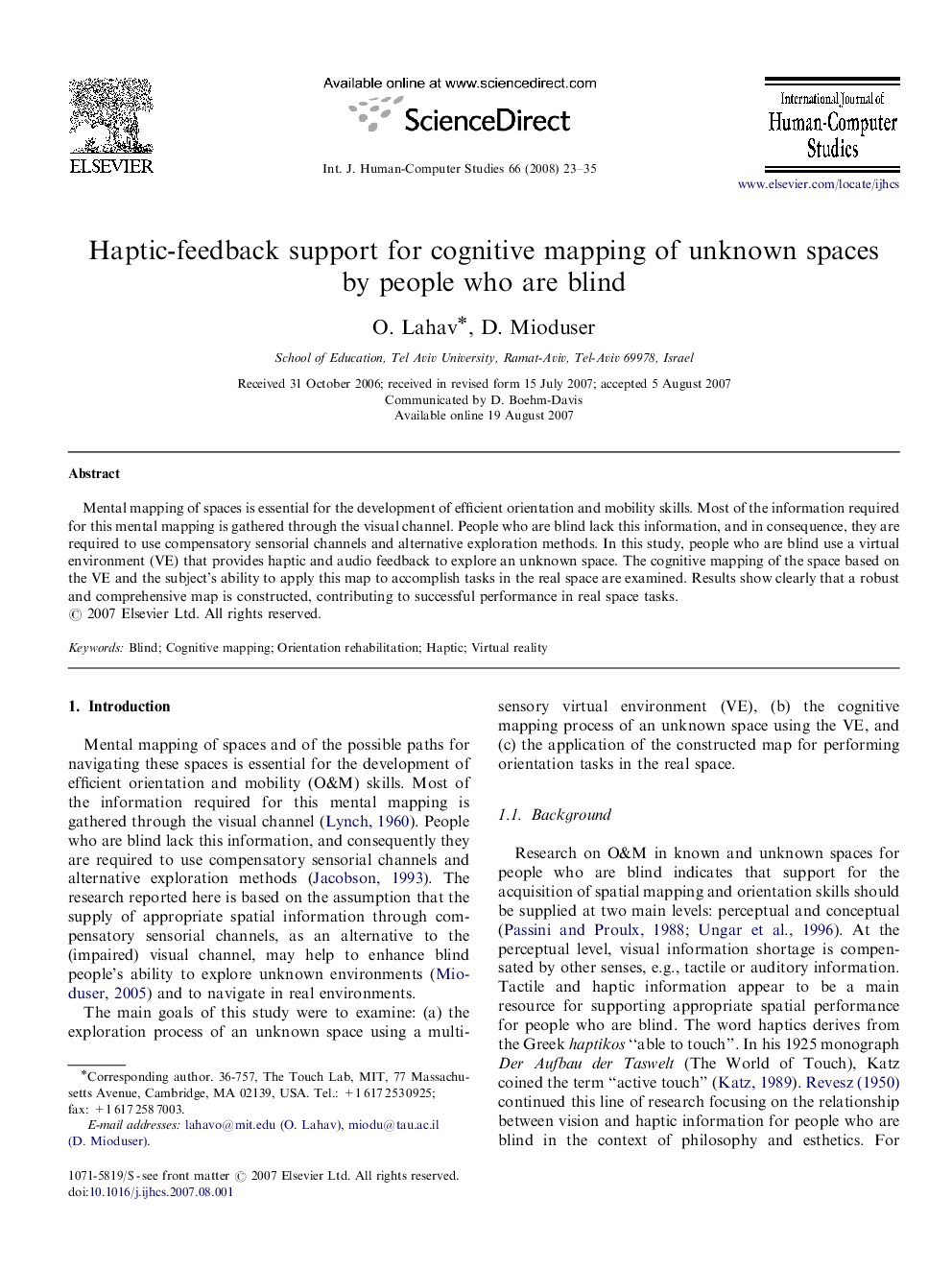| Article ID | Journal | Published Year | Pages | File Type |
|---|---|---|---|---|
| 401035 | International Journal of Human-Computer Studies | 2008 | 13 Pages |
Mental mapping of spaces is essential for the development of efficient orientation and mobility skills. Most of the information required for this mental mapping is gathered through the visual channel. People who are blind lack this information, and in consequence, they are required to use compensatory sensorial channels and alternative exploration methods. In this study, people who are blind use a virtual environment (VE) that provides haptic and audio feedback to explore an unknown space. The cognitive mapping of the space based on the VE and the subject's ability to apply this map to accomplish tasks in the real space are examined. Results show clearly that a robust and comprehensive map is constructed, contributing to successful performance in real space tasks.
